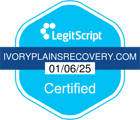When we’re at our lowest point, it’s all too easy to think we’re all alone and no one understands what we’re going through or how we feel. Moving through addiction treatment and into recovery also prompts similar thoughts and emotions. However, decades of research indicate that true connection is a lifesaver and worth the effort. So it might be important to talk with relatives about your addiction recovery and be candid about what will best serve you.
Why Deep Conversations Matter
It’s not that everyone has a right to all of your business—far from it. But to cultivate meaningful connections, it’s essential to use tips from your therapeutic sessions and support group interactions to have more open and honest discussions with family members and close friends.
Gail Heyman, a University of California psychology professor, studies the effects “good conversations” have on us. “Personal conversations are a path to closer relationships,” she says in this article. “And there is a lot of research showing that close relationships predict happiness.” However, these conversations have to delve a little deeper than the typical chit chat. For example, one study she references indicates that “people who spent less time alone and more time with others had better life satisfaction and that more meaningful conversations (rather than small talk) were also associated with higher well-being,” Heyman says.
However, we’re all fully aware that difficult conversations can be challenging. Here’s one scenario: perhaps you weren’t completely convinced you needed addiction treatment but your family encouraged you to enter rehab and there’s a bit of resentment. Another conversation might be about your dysregulated behavior while under the influence of alcohol or drugs, and how you’re working in your 12-Step program to make amends. Or perhaps there’s a history of family dysfunction that needs to be addressed before full healing can begin.
Now that you’re shaping a better life in recovery, more meaningful exchanges about your experiences and feelings—and being receptive to how your loved ones feel as well—establishes a foundation for resolving conflicts and fostering greater understanding between everyone involved.
How to Start Hard—But Necessary—Conversations<
In an article for Choosing Therapy, psychotherapist Joyce Marter notes that certain types of conversations, regardless of the topic, may be even more complicated if people are conflict-adverse or engage in avoidance behaviors. But for your overall well-being, it’s essential to persevere and open the door to engagement. Here are some tips that might help.
- Prepare and plan. Before diving into the conversation, take time to outline your key points and objectives. Marter suggests asking yourself questions like, “Why is the conversation important to me?” and “What is the ideal outcome of this conversation?” Also consider the best time and place for the discussion, and anticipate potential reactions or emotions. Planning ahead can help you stay focused and ensure clarity during the conversation.
- Stay calm and respectful. Emotions can run high during difficult conversations, but staying calm is crucial. Take deep breaths, remain composed, and avoid escalating the situation. Respectful communication, even in disagreement, maintains the integrity of the conversation and encourages the same from the other person.
- Use “I” statements. Frame your thoughts and feelings using “I” statements to express yourself without sounding accusatory. For instance, instead of saying, “You never consider my opinions,” try “I feel unheard when my opinions aren’t considered.” This approach can prevent defensiveness and encourage a more constructive dialogue.
- Employ active listening. “We often think of listening as a passive process, but it doesn’t have to be,” Heyman says. “Active listening involves giving your undivided attention to people. This helps people feel understood and cared about, and it can build trust and strengthen relationships.” Practice active listening by giving the other person your full attention. Be present and focused on what they’re saying without interrupting. Reflect their feelings and thoughts to show understanding and empathy.
- Focus on solutions. Aim to find common ground or solutions rather than dwelling solely on the problem. Propose potential solutions or compromises collaboratively. This helps shift the conversation from a confrontational tone to a problem-solving one, fostering a more positive outcome. “Even if you can’t completely agree, finding a compromise or middle ground can be a step in the right direction,” Marter points out.
Remember, every difficult conversation is an opportunity for growth and compassionate connection, even if it feels uncomfortable initially.
Discover Your Potential at Ivory Plains
You’re never alone on your recovery journey. The philosophy of our addiction rehabilitation program in Adair, Iowa is to offer you a safe, supportive setting and board-certified professionals to meet your needs both during treatment and in aftercare. Our residential and partial hospitalization programs emphasize a structured community approach while establishing not only early skills but also a long-term foundation for recovering adults. This approach helps set you up for success. Talk with our admissions team if you’re ready to redefine sober relationships on your terms.








